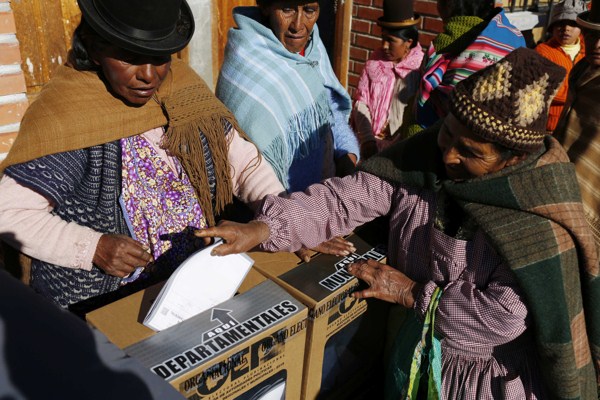The city of El Alto, Bolivia, should be a stronghold for President Evo Morales and his Movement Toward Socialism (MAS) party. Perched on the Andean Plateau above its sister-city La Paz, the sprawling, fast-growing El Alto is considerably poorer and more indigenous than the capital. Almost three-quarters of its almost 1 million inhabitants are, like Morales, ethnically Aymara, and in the past voters have supported the president and other MAS candidates by large margins. On March 29, however, things took a turn in regional elections as the party lost dramatically in both the El Alto mayoral and the La Paz department gubernatorial races. The defeats headlined a broader wave of opposition victories in regional elections across Bolivia.
While the losses may appear simply to be a blow to Morales—now entering his 10th year in office, the longest-serving president in Latin America—they are in fact more complicated. They reflect both a protest vote against recent corruption scandals within the MAS and a growing disconnect between voters’ support for Morales and their opinion of the rest of the party.
In El Alto, corruption brought Bolivians to the polls to vote against the MAS. A recently leaked video had captured the incumbent MAS candidate for mayor, Edgar Patana, accepting a packet of what appeared to be cash in 2008, while he was head of the central regional labor union. Voters took note and resoundingly chose opposition candidate Soledad Chapeton by an almost 2-to-1 margin, a dramatic reversal from Patana’s nine-point margin of victory over Chapeton in 2010.

